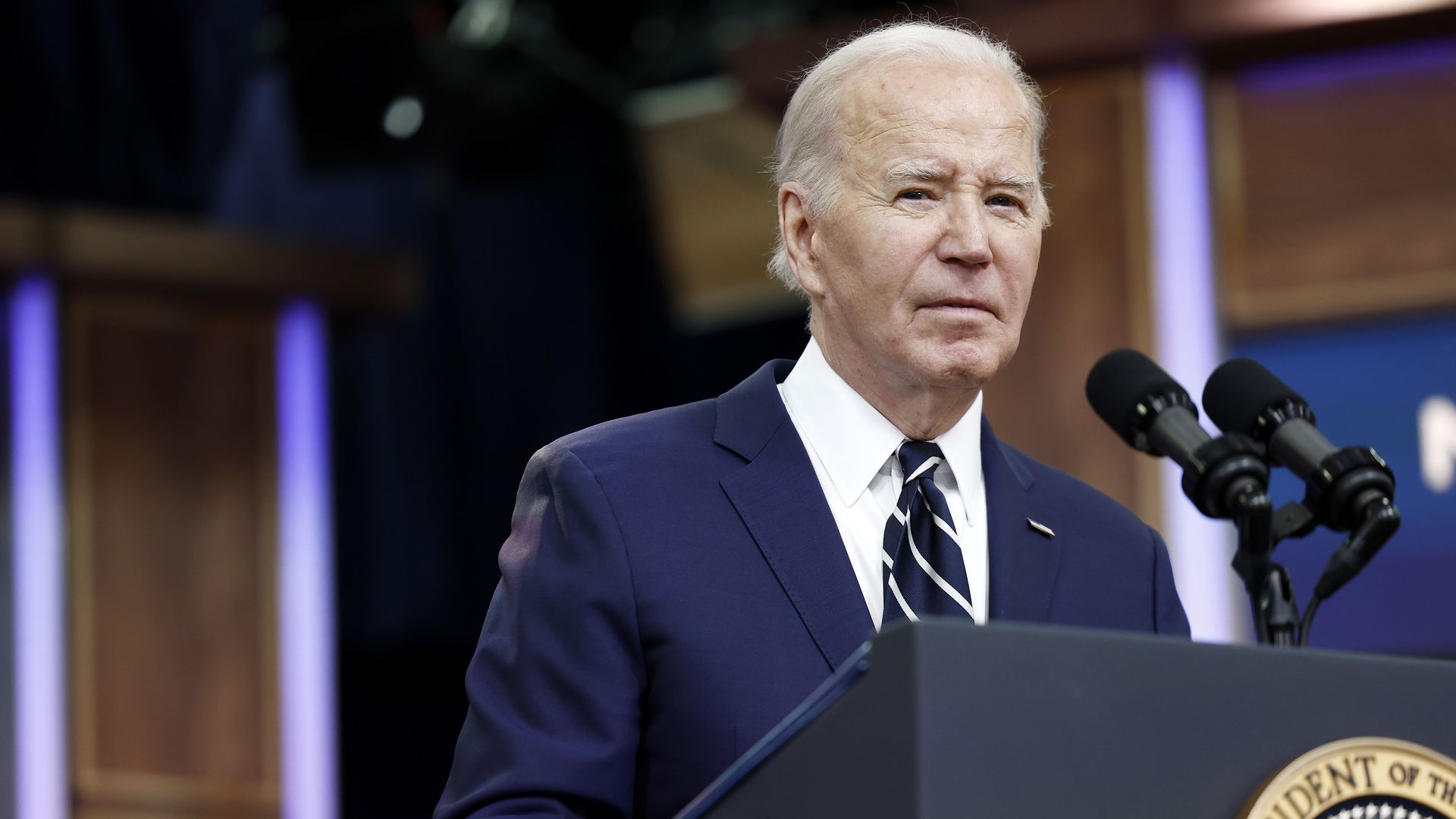President Joe Biden has made it clear that the United States will not support a counterattack in Iran. In a statement released on Saturday night, Biden emphasized the need for a diplomatic response to Iran's aggressive actions. This decision comes as tensions escalate between Iran and Israel, with the two countries engaging in a "war between wars" primarily in Syria.
Israel has long been concerned about Iran's growing influence and the transfer of advanced weapons to its proxies. In response, they have conducted strikes targeting Iranian-backed militias and Hezbollah. However, Biden's administration has expressed their commitment to seeking a diplomatic solution to de-escalate the situation.
Biden's message to Israeli Prime Minister Benjamin Netanyahu was clear: the United States will not participate in any Israeli counterattack against Iran. This declaration has faced some pushback, but the White House remains steadfast in their commitment to avoid further military confrontation.
While Israel may be inclined to respond aggressively to Iran's actions, Biden urged them to exercise restraint and consider alternative diplomatic measures. The United States believes that a peaceful solution is crucial to maintaining stability in the region.

Credit: www.instagram.com

Credit: www.axios.com
Why a Diplomatic Response Matters
A diplomatic response to Iran's aggression is the preferred course of action for several reasons. Firstly, it allows for open dialogue and negotiations, ensuring that all parties have the opportunity to express their concerns and find common ground. This approach helps prevent further escalation and reduces the risk of an all-out war.
Secondly, a diplomatic response can lead to lasting resolutions that address the underlying issues causing tension between Iran and Israel. By engaging in negotiations, both parties can work towards finding mutually agreeable solutions and potentially de-escalate the situation.
Furthermore, a diplomatic approach promotes international cooperation and involvement. The United States, as a global superpower, plays a crucial role in facilitating diplomatic efforts and encouraging other nations to support peaceful resolutions. This collaborative approach fosters stability, peace, and long-term security in the region.
The Importance of Biden's Decision
President Joe Biden's decision not to support a counterattack in Iran sends a clear message to the international community. It signals the administration's commitment to prioritize diplomacy and avoid further military engagement. This decision aligns with Biden's broader foreign policy goals, emphasizing the importance of international cooperation and seeking peaceful solutions to conflicts.
By abstaining from participating in any Israeli counterattack against Iran, the United States sets an example for other nations to follow. It encourages dialogue, negotiation, and international involvement in resolving conflict, rather than resorting to military action. This approach promotes stability, reduces the risk of casualties, and prevents an escalation that could have far-reaching consequences.
Frequently Asked Questions Of Biden: The United States Does Not Support A Counterattack In Iran
Why Is Iran Fighting With Israel?
Iran is fighting with Israel due to conflicts in Syria, where Israel targets Iranian-backed militias to limit Tehran's influence and prevent weapon transfers to proxies.
Why Did Biden Mention The United States Will Not Support A Counterattack In Iran?
Biden's statement aims for a diplomatic response to Iran's actions, steering clear of escalation.
How Does The Us Plan To Address Iran's Aggressive Actions Without A Counterattack?
The focus is on diplomatic solutions to manage Iran's behavior effectively.
Conclusion
The United States' decision not to support a counterattack in Iran emphasizes its commitment to seeking a diplomatic solution to the tensions between Iran and Israel. President Biden's message to Israeli Prime Minister Benjamin Netanyahu underscores the importance of pursuing peaceful resolutions and avoiding further military confrontation.
A diplomatic response is crucial in addressing the underlying issues causing tension and finding lasting solutions. By prioritizing diplomacy, the United States promotes international cooperation, stability, and long-term security in the region. Biden's decision sets a strong example for other nations and encourages dialogue over military escalation.